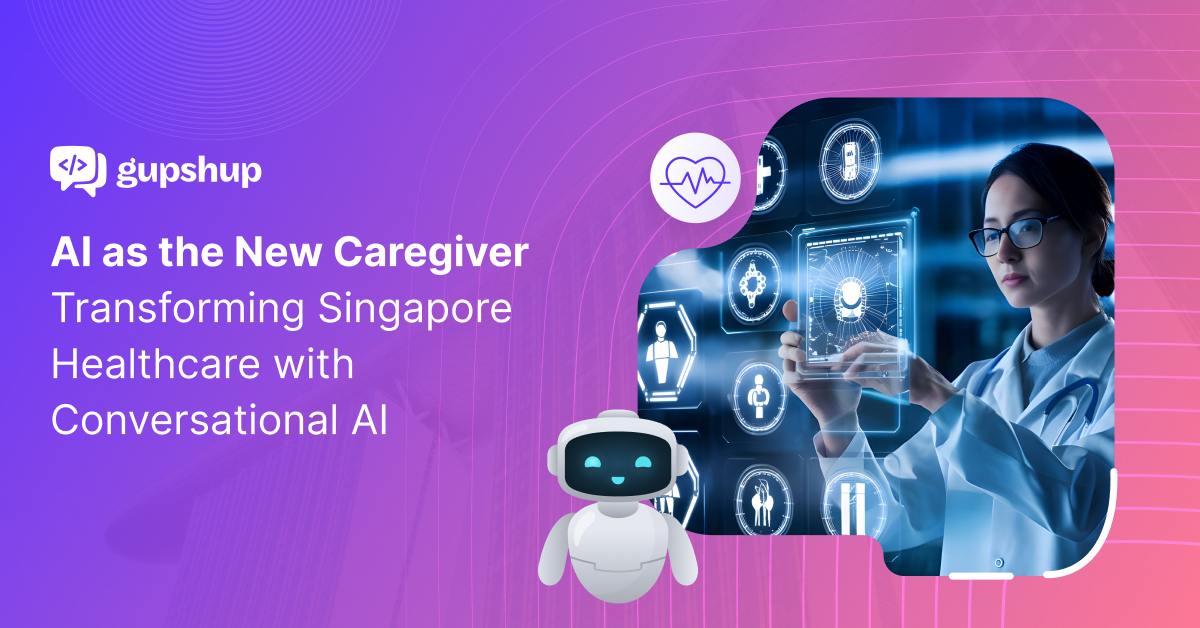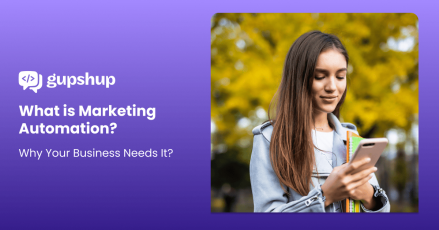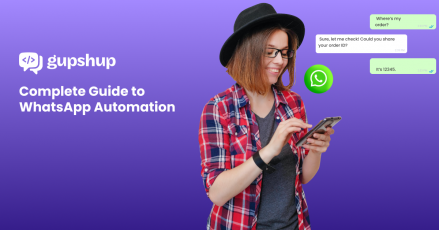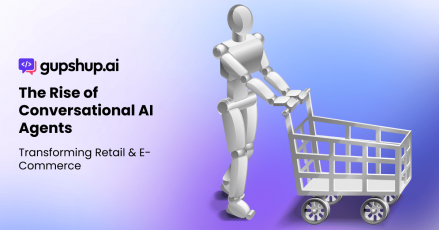AI as the New Caregiver: Transforming Singapore Healthcare with Conversational AI

Introduction
Singapore is experiencing a demographic shift towards an aging population, placing significant pressure on its healthcare system. The latest CNBC research report reveals that individuals aged 65 years and older now account for approximately one-fifth of Singapore’s total population. This shift intensifies the demand for quality healthcare services, straining traditional systems.
Traditional healthcare systems face limitations such as manpower shortages, escalating costs, and inefficiencies in handling complex health needs. These challenges hinder timely and personalized care, which is crucial for an aging population with diverse healthcare requirements.
In this context, conversational AI emerges as a key solution that enhances healthcare accessibility and efficiency. Tools like conversational chatbots and the WhatsApp Business API, integrated through omnichannel messaging solutions such as Conversational Cloud, enable healthcare providers and patients to stay connected around the clock via popular channels like WhatsApp.
Conversational AI streamlines patient interactions for you through automated responses and personalized guidance. It further reduces administrative burdens on healthcare professionals and provides prompt responses to patients.
Let’s explore how conversational AI can transform healthcare in Singapore and address the needs of its aging population.
The Conversational AI Solutions to Singapore’s Healthcare
While Singapore’s seniors are digitally literate, complex interfaces can steal their confidence. So, favoring their healthcare with a chatbot won’t be very effective unless it is straightforward.
This is where conversational AI chatbots come in, especially when integrated with a familiar platform like WhatsApp API for the healthcare industry. It creates a perfect environment for patients to ask health-related questions, share test results, book appointments for routine checkups, etc.
Here’s how opting for the WhatsApp API in Singapore can help healthcare across various areas:
1. Remote patient monitoring
Conversational AI integrated with the WhatsApp Business API makes it easier for healthcare providers to connect with their patients remotely. Through AI-driven chatbots, patients can easily report their health status, symptoms, and medication adherence in real-time via WhatsApp.
These chatbots can understand patient responses, alert healthcare providers to any concerning changes, and suggest necessary actions. They can also remind patients to record their symptoms and take their next dose of medication. If the chatbots notice any unusual trends, they can prompt patients to contact their doctors right away.
2. 24/7 health information and support
By using WhatsApp API in the healthcare industry integrated with conversational AI, you can provide on-demand access to reliable health information. These AI-driven chatbots can respond immediately to inquiries about symptoms, medications, and general health advice, regardless of time zones.
Whether it is midnight in Singapore or they are in a different time zone, your patients can seek advice through WhatsApp’s self-serve platform as and when required.
3. Chronic disease management
Living with a chronic condition like diabetes requires constant support and care without any overlooking.
Conversational AI integrated with the WhatsApp API in Singapore plays a pivotal role in chronic disease management by providing continuous support and monitoring. They can engage patients in ongoing conversations to track symptoms and progress, allowing healthcare providers to intervene proactively when necessary.

4. Coordinating medical resource allocation
Conversational AI-powered virtual assistants help efficiently manage and distribute medical resources in Singapore healthcare facilities. These AI tools identify resources like the availability of hospital beds, doctors, or testing facilities on patient needs. By automating these tasks, AI reduces administrative burdens, optimizes workflows, and ensures critical resources meet patient demand.
5. Appointment scheduling and reminders
Gone are the days when your patients had to write down the journals to remember appointment times.
Chatbots in WhatsApp Business API can streamline appointment scheduling by allowing your patients to book consultations directly through your chat window.
They can answer basic questions about appointment availability and then provide a clear call to action (CTA) like “Click here to book your appointment now!” This CTA would link directly to your scheduling platform, allowing your patients to seamlessly select a convenient time slot and confirm their appointment in seconds. This saves them time and frustration while ensuring your practice runs more efficiently.
Automated reminders can also prevent missed appointments, ensuring they receive the timely care they deserve.
Leveraging Conversational AI in Singapore’s Healthcare Industry
WhatsApp Business API is already a great platform, making it easy for your patients to switch their physical helplines to digital ones. But how to leverage it? For optimal impact, several other key considerations are essential.
1. Integration with existing systems
Securely integrating with your healthcare system existing systems is the first step of chatbot integration, ensuring your patient data remains confidential.
Conversational AI tools can integrate with Electronic Health Records (EHR) to access your patient’s medical history, allergies, and medications. This ensures the privacy of your patient’s data and fosters a smooth user experience.
This way, HCPs can provide personalized recommendations and avoid medication conflicts. For example, your healthcare chatbot can look into a patient’s blood pressure data and suggest healthy practices to maintain it.
2. Multilingual support
Singapore’s vibrant culture is a multilingual environment. To ensure inclusivity, your chatbot solutions should cater to the nation’s diverse languages, such as English, Mandarin, Malay, and Tamil. This ensures everyone has equal access to healthcare information and support.
With WhatsApp API in the healthcare industry, you can offer multilingual support for a vast pool of customers. It allows your patients to interact in their preferred language within the familiar app interface.
3. Data privacy & security
Data privacy is paramount in healthcare. WhatsApp Business API offers secure communication channels with built-in encryption protocols to safeguard this.
This ensures your patient’s sensitive data remains confidential during interactions with chatbots and does not end up elsewhere. Chatbot solutions must employ robust security measures like:
- Encryption: All data exchanged between your patients and chatbots should be encrypted to prevent unauthorized access.
- Compliance with Regulations: The chatbot development should adhere to Singapore’s Personal Data Protection Act (PDPA) to ensure data privacy compliance.
Conclusion
Conversational AI chatbots can change Singapore’s healthcare system for the elderly and the entire population. These AI systems streamline workflows, reduce administrative burdens, and efficiently allocate critical resources like hospital beds and medical equipment.
Real-time updates using Whatsapp API in the healthcare industry enable healthcare providers to make swift, informed decisions and respond effectively to dynamic healthcare needs. This transformation not only optimizes operational efficiency but also improves patient outcomes.
One of the best WhatsApp service providers in Singapore, Gupshup offers innovative Conversational solutions, leading towards a more inclusive, efficient, and patient-centered healthcare environment.
By equipping healthcare providers with cutting-edge communication tools such as healthcare chatbots and virtual assistants, we look forward to fostering seamless interactions between patients and medical professionals.
Our holistic approach can enhance patient outcomes while streamlining staff workflows, fundamentally reshaping the Singaporean healthcare landscape for the better.
Get in touch with us today!
Frequently Asked Questions (FAQs)
Is Conversational AI safe for my health information?
Data security always comes first. Conversational AI solutions for healthcare must adhere to strict regulations like Singapore’s Personal Data Protection Act (PDPA). Platforms like WhatsApp Business API offer encrypted communication to safeguard patient information.
How will Conversational AI impact healthcare professionals’ jobs?
Conversational AI cannot replace doctors and nurses. Instead, it is a helpful assistant, freeing professionals’ time for complex cases.
It mostly interacts with patients, handling appointment scheduling and basic health information requests so that doctors can focus on in-depth patient care.
What are the benefits of using AI for hospitals and clinics?
AI chatbots offer a win-win situation for healthcare providers. They can:
- Improve patient engagement and education
- Reduce administrative burden by automating tasks
- Offer 24/7 support, improving patient satisfaction
- Streamline appointment scheduling and reduce no-shows





